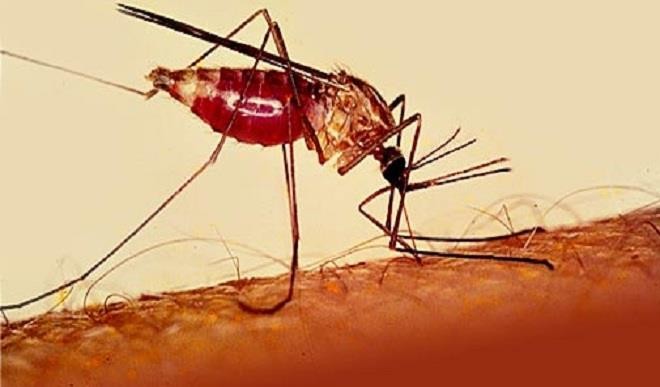The House of Representatives on Wednesday called on the federal Ministry of Health to implement the National Anti-Malaria Treatment Policy to provide free Malaria treatment for Nigerians in all public hospitals.
It also called on the Nigeria Centre for Disease Control (NCDC) to contain the spread of Lassa fever outbreak in Benue state and others parts of the country.
The Reps made the call during the Plenary today after it adopted two separate motions on the issues.
The motions were the “Review of the National Anti-Malaria Treatment Policy in Nigeria” sponsored by Benjamin Bem Mzondu (PDP Benue) and the “Recent Outbreak of Lassa Fever in Benue state”, sponsored by Robert Aondona Tyough (PDP Benue).
Presenting his motion, Mzondu disclosed that 76% of the Nigerian population are affected in high malaria transmission areas while 24% are affected in low malaria transmission areas.
“The House notes that Nigeria was identified as one of the countries targeted by the President’s Malaria Initiative (PMI) in 2005 to reduce malaria-related mortality by 50% across 15 high-burden countries in sub-Saharan Africa;
“Also notes that the initiative revolved around four proven and highly effective malaria prevention and treatment measures: Insecticide-Treated Mosquito Nets (ITNs); Indoor Residual Spraying (IRS); Accurate Diagnosis and prompt treatment with Artemisinin-Based Combination Therapies (ACTs); and Intermittent Preventive Treatment of Pregnant Women (IPTP).
“Further notes that there are over 100 million people at risk of malaria every year in Nigeria and indeed, it was estimated that about 50% of the adult population in Nigeria experienced at least one malaria attack yearly, while the under-five years children have up to 2 – 4 attacks of malaria annually.
The House recalls that Heads of Governments and International Agencies signed the Abuja Declaration during the 2005 African Summit on Roll Back Malaria in Abuja as a commitment to reduce the menace of malaria.
The accord stipulated that concerted efforts should be made to ensure that by the end of 2005, at least 60% of those at risk of malaria attacks should have access to good, quality, affordable and efficacious anti-malaria drugs.
“Aware that the PMI Strategy for 2015-2020 takes into account the progress over the past decades and the new challenges that have arisen, including the yearly economic losses due to malaria attack in Nigeria which have been put at N132billion due to costs of treatment, transport to sources of treatment, loss of man-hours, absenteeism from schools and other indirect costs,” it stated.
The lawmakers were however worried that despite the efforts, the poor can’t afford the cost of effective malaria treatment especially rural dwellers who bear the malaria burden which hinders the effort to control the disease.
Contributing to the debate, Chris Ngoro (PDP Cross Rivers) said that 300,000 death is being recorded in the country despite the annual spending of N132billion on malaria treatment.
“N132 billion spent annually on the treatment and management of malaria in the country and N900 million of it is spent on drugs.
“Nigeria loses about 300,000 lives to malaria annually, and most of the deaths are women and children.
“We need a new direction in handling malaria issues and focus on complete eradication of malaria. It is a vector propagated disease and once you cut off the vector, the disease dies. Why are we not focussed on cutting off the vector? Sub Sahara Africa is not the only part of the world that suffered from malaria, but malaria has been eradicated in most parts of the world.
The lawmaker advocated for the spray of an earlier banned chemical to eradicate mosquitoes, saying the ban had since been lifted and is being utilised by South Africa.
“Today, the only country in Sub-Saharan Africa that has taken advantage of the lifting of that ban is South Africa. South Africa has done three sprays in two years and the malaria level in South Africa has been reduced to one percent.
“We should as a country attempt to spray the chemical, it will be a one-off thing and there will be no need for budgetary provision annually. When you do that spray, malaria ends and the cost of treatment ends and our losing loved ones to malaria end”, he said.
The House therefore mandated its committee on Health Care Services to liaise with the federal ministry of health, relevant international organizations and donor agencies to ensure that malaria treatment is made free in all public hospitals in Nigeria.
Similarly, the House also urged the health ministry to create more awareness on the dangers of Lassa fever and other communicable diseases and adopt preventive measures to avoid contracting the disease.
Presenting the motion to that effect, the sponsor, Tyough said that cases of the fever has been recorded in 16 states which include Edo, Ondo, Ebonyi, Bauchi, Plateau, Taraba, Gombe, Anambra, Kaduna, Kwara, FCT, Benue, Rivers, Nasarawa and Kogi spread across 40 local government areas which led to the death of 41 people.
According to him, in June, 2019, two new confirmed cases were reported in Edo and Benue states leading to one death in Benue.
According to him, from January 1st to June 30th, 2019, 2,882 suspected cases from 22 states out of which 603 were confirmed positive, 17 probable and 2,262 negative.
The lawmaker lamented that since the onset of the 2019 Lassa fever outbreak in the country, there have been 136 confirmed cases of deaths which placed the fatality ratio in confirmed cases to a high 22.6%.
He further disclosed that the Benue State Commissioner for Health and Human Services, Dr. Sunday Ongbabo, had recently confirmed another round of outbreak of Lassa fever in the state with the death of a patient in the state capital.
Adopting the motion, the House mandated its Committee on Healthcare Services to ensure compliance with the decision and report back within four weeks for further legislative action.

 Join Daily Trust WhatsApp Community For Quick Access To News and Happenings Around You.
Join Daily Trust WhatsApp Community For Quick Access To News and Happenings Around You.

